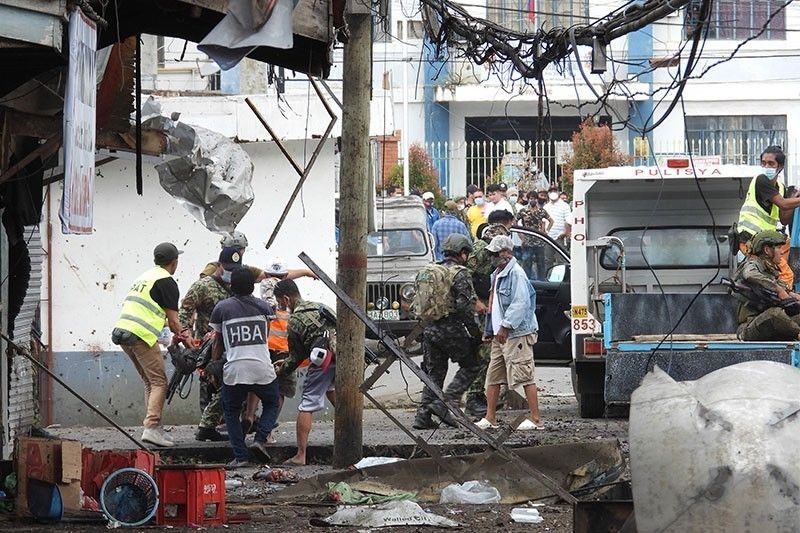Palace: Duterte will consider recommendation of martial law in Sulu

MANILA, Philippines — Malacañang on Wednesday said President Rodrigo Duterte is considering the military and police’s recommendation to declare martial law in Sulu following the twin blasts in Jolo on Monday.
Lt. Gen. Cirilito Sobejana, chief of the Philippine Army, said he would recommend to Gen. Gilbert Gapay, Armed Forces of the Philippines chief, that the province of Sulu be placed under martial law. Police General Archie Gamboa, chief of the Philippine National Police, also backed this recommendation.
Sulu had already had a heavy military presence even before martial law was delared in Mindanao in 2017. That declaration was extended until the end of 2019, with Congress readily voting in favor of it in the region.
In an interview with CNN Philippines, presidential spokesperson Harry Roque said: “Let’s just say that the recommendations have been made, and the President listens to those on the ground.”
At least 14 people were killed and 72 others were wounded in the twin bombings that rocked Jolo, Sulu on Monday. The police tagged the incident as the latest act of terrorism in the country.
Roque said: “The president will, of course, consider this recommendation as will both Congress and the Supreme Court because, as you know, a declaration of martial law contains safeguards not found in the 1935 Constitution.”
The presidential spokesperson was referring to the Constitutional requirements that the president submit a written report to the Congress, which the lawmakers will vote on. The SC may also review the sufficiency of the factual basis of the proclamation and must promulgate its decision within 30 days from the filing.
The Constitution holds that the president may proclaim martial law or suspend the privilege of the writ of habeas corpus “in case of invasion or rebellion, when the public safety requires it.”
Anti-terrorism law may be applicable
Justice Secretary Menardo Guevarra said Tuesday that the declaration of martial law would depend on the nature of investigation after the investigation. “If it’s a terrorist act, the government will enforce the anti-terrorism law to the extent hath it can be implemented without the [Implementing Rules and Regulations], which is still being prepared,” he told reporters.
The Anti-Terrorism Act of 2020 took effect mid-July.
If the probe will show that the incident was due to lawless violence, “the president may use his calling-out power to suppress further violence under Section 18 Article VII of the Constitution.”
“If it’s an act of rebellion, and public safety requires it, the president may declare martial law in that part of Mindanao,” Guevarra added.
Duterte placed the whole of Mindanao under martial law for two and a half years, from May 2017 until the end of December 2019. The initial proclamation was after an attempt by state forces to arrest Abu Sayyaf leader Isnilon Hapilon in Marawi City developed into a siege of the capital of Lanao del Sur. — Kristine Joy Patag
- Latest
- Trending


































